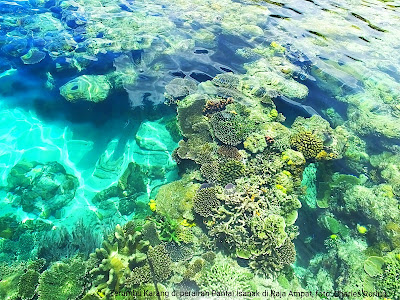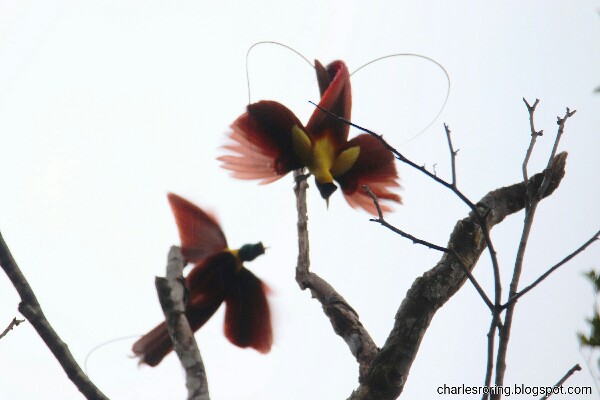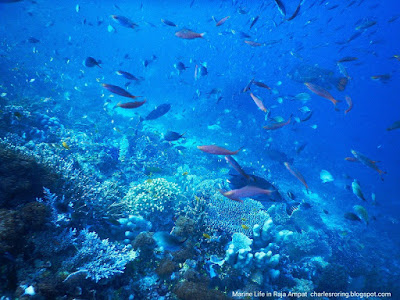 |
| Isanak beach in Raja Ampat |
There are a lot of snorkeling sites in Raja Ampat, for visitors who only have one to two weeks of their vacation time, I suggest that they choose locations that are close to their homestay or beach resort, and budget.
To explore coral reef sites in numerous islands of Raja Ampat, visitors can arrange snorkeling tours with the resort or homestay owners who usually have got boats for rent.
Recommended Snorkeling Spots:
 |
| Coral Reef in Raja Ampat |
- Isanak Beach - This coral reef area is located in a small uninhabited island in the eastern tip of Waigeo. Because human activities in the island are very little, the coral reef at this beach is very healthy and is very richh of marine life. The beach faces the open water of Pacific Ocean. Visitors who want to enjoy snorkeling at this site have to be accompanied by local people. They have to bring small motorized wooden boat from the nearby village to escort you from the sea while you enjoy snorkeling. Don't forget to bring an underwater camera.
- Paradisea beach - This beach is located in the southern region of Waigeo island where Paradisea Dive Resort is operating. Visitors are advised to stay there for a few days if they want to enjoy snorkeling, sunbathing and birding. Snorkeling here is easy because the beach has got a wide reef flat that gradually leads to reef edge and then the drop off. Snorkeling during high tide is highly recommended to avoid any damages to the coral reef when visitors enjoy snorkeling and freediving at the beach.
- Yenbuba Strait - This is a famous snorkeling and scuba diving site in Raja Ampat located between Kri and Mansuar islands. A lot of marine animals can be seen in the strait from a small moorish idol, and diagonal sweetlips to hawksbill turtle to black tip reef shark and wobbegong.
- Western tip of Mansuar - there are several snorkeling sites in this area, the one that faces Gam island and the ones that is at the same beach line with Sawondarek village. In the past, Sawondarek was a very good site for snorkeling. Unfortunately, its reef flat area now has broken. However, its outer reef and drop off areas are still in very good condition. Visitors who enjoy snorkeling can see barracuda, giant trevally, spadefish, grouper.
- Karst islets of Kabui bay - Here the sea is calm. Visitors can choose one of the many karst islets that stand on the water like mushrooms to see its marine life. There are abundant anemonefish, butterflyfish and parrotfish. If a sea-snake comes closer, don't provoke the animal. Just swim away from him.
- Five Rocks - This site is suitable for more advanced snorkelers. The sea is not always calm. The marine life is abundant. Don't swim too close to the rocks when there are waves.
- Cape Kri - This is one of the most recommended sites in Raja Ampat for snorkeling, freediving and scuba diving. Coral reef is very healthy with abundant marine life. Because, most often the current is strong, visitors have to be escorted by a small motorized boat.
Related articles:
- Snorkeling Tour in Raja Ampat islands
- Snorkeling in Mansuar island of Raja Ampat
- Raja Ampat Snorkeling Birding and Sightseeing
- Snorkeling in Arborek of Raja Ampat















































